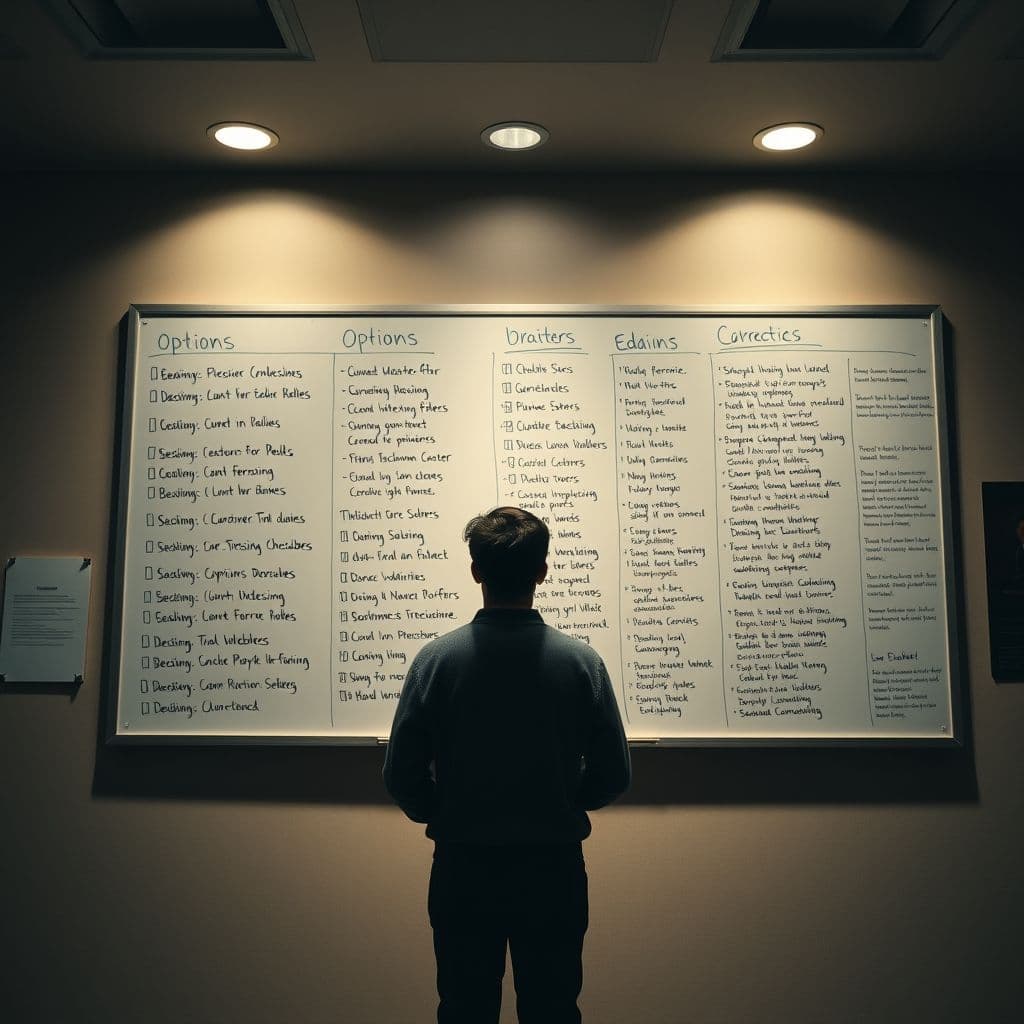Master Critical Thinking Skills: A Step-by-Step Guide to Better Decision Making

Critical thinking is an essential skill in today's fast-paced world. Whether you're making decisions at work, analyzing information, or solving problems, the ability to think critically can set you apart. This guide will walk you through the steps to develop and refine your critical thinking skills, from understanding the basics to applying them in real-life scenarios. View original learning path
Step 1: Understand the Basics
Before diving into complex problem-solving, it's crucial to grasp the foundational elements of critical thinking. These include logic, reasoning, evidence, and assumptions. Logic helps you structure your thoughts coherently, while reasoning allows you to draw conclusions from given information. Evidence is the backbone of any argument, and recognizing your own assumptions can prevent biases from clouding your judgment. For example, when evaluating a news article, ask yourself: What evidence supports the claims? Are there any hidden assumptions?

Step 2: Develop Analytical Skills
Analytical skills are the tools that help you break down complex information into manageable parts. Observation is about paying attention to details, while pattern recognition allows you to see trends and connections. Data analysis involves interpreting numerical or qualitative data, and problem-solving is about finding effective solutions. For instance, if you're analyzing sales data, look for patterns in customer behavior to identify opportunities for improvement.
✨ Build your personalized learning path in seconds with AI
Try SkillAI for Free →Step 3: Enhance Critical Thinking Abilities
To take your critical thinking to the next level, focus on questioning, evaluation, inference, and decision-making. Questioning involves challenging the status quo and asking 'why' or 'how.' Evaluation is about assessing the credibility of sources or arguments. Inference allows you to draw conclusions based on evidence, and decision-making is the final step where you choose the best course of action. For example, when faced with a difficult decision, list the pros and cons of each option and evaluate them objectively.

Step 4: Apply Critical Thinking in Real-Life Scenarios
Critical thinking isn't just theoretical—it's most valuable when applied to real-life situations. Argument analysis helps you dissect and understand others' viewpoints, while recognizing logical fallacies can prevent you from being misled. Problem identification is about pinpointing the root cause of an issue, and creative thinking allows you to come up with innovative solutions. For instance, in a team meeting, practice identifying any logical fallacies in arguments and propose well-reasoned alternatives.
Step 5: Continuously Practice and Refine Critical Thinking Skills
Like any skill, critical thinking improves with practice. Active listening ensures you fully understand others' perspectives, while open-mindedness allows you to consider different viewpoints. Healthy skepticism helps you question information without being cynical, and effective communication ensures your ideas are clearly conveyed. For example, engage in debates or discussions where you practice listening actively and responding thoughtfully.

Conclusion
Critical thinking is a powerful skill that can transform how you approach problems, make decisions, and interact with others. By understanding the basics, developing analytical skills, enhancing your abilities, applying them in real-life scenarios, and continuously practicing, you'll become a more effective and confident thinker. Start small, be consistent, and watch your critical thinking skills flourish.
Ready to level up your critical thinking? Share your progress or a recent decision you made using these skills in the comments!
🚀 Create Your Free Learning PathFrequently Asked Questions
- How long does it take to master critical thinking?
- Mastering critical thinking is an ongoing process. While you can see improvements in a few weeks with consistent practice, becoming highly proficient may take months or even years of deliberate effort.
- What are common mistakes beginners make?
- Common mistakes include relying on assumptions without questioning them, failing to consider alternative viewpoints, and not evaluating the credibility of sources. Practicing active listening and open-mindedness can help avoid these pitfalls.
- Can critical thinking be taught?
- Absolutely! While some people may have a natural inclination, critical thinking is a skill that can be developed through practice, reflection, and exposure to diverse perspectives.





